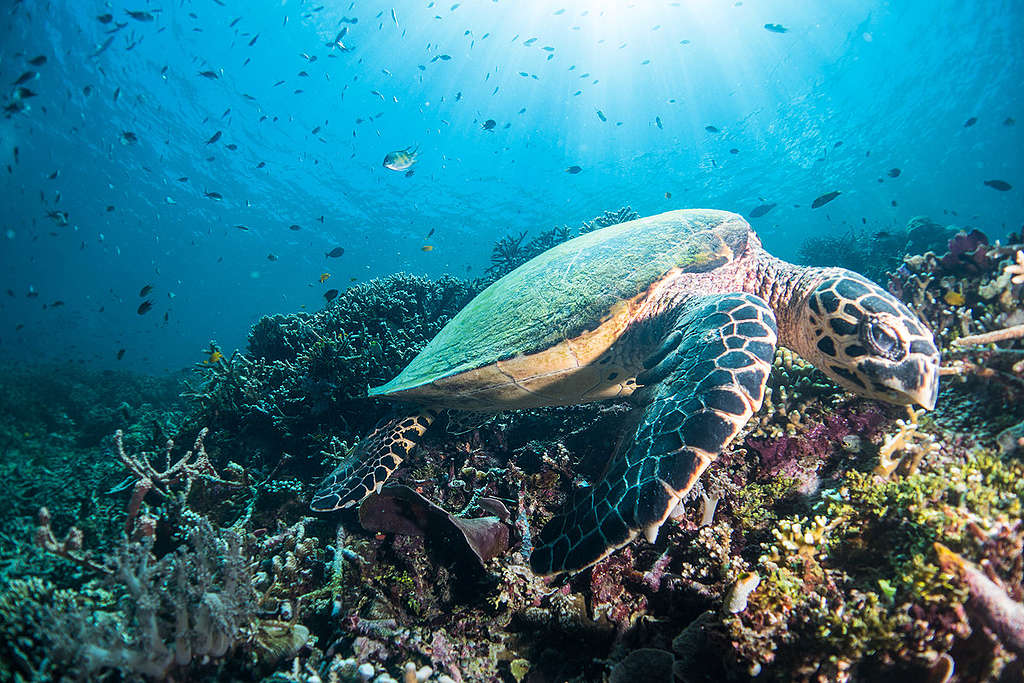Jakarta, Indonesia — Key human rights, migrant worker, and crime government agencies are failing to protect and meet the needs of Southeast Asian migrant fishers working on-board distant water fishing (DWF) vessels. A new report, which has been submitted and endorsed by 24 civil organisations across Southeast Asia[1], analyses how these key government agencies are failing to identify “migrant fishers” as “migrant workers”, or coordinate in specifically remedying issues that migrant fishers face.
The report titled “Briefing Paper on Ratifying and Implementing ILO Convention 188 in ASEAN Member States” shows how the frameworks of the ASEAN Committee on Migrant Workers (ACMW), the ASEAN Intergovernmental Commission on Human Rights (AICHR), and the Senior Officials’ Meeting on Transnational Crime (SOMTC) do not do enough to meet the needs to properly protect and ensure the rights of migrant fishers; and they should instead empower and encourage ASEAN Member states (AMS) to tackle forced labour at sea problems. Specifically, the report urges the ratification of the International Labour Organization’s Work in Fishing Convention 188 (ILO C-188), which is the most comprehensive international instrument concerning the working conditions and labour rights of fishers.
“Fishing industries heavily rely on migrant workers from countries where employment is scarce and who are willing to work for starvation wages. As a result, this has put every Southeast Asian migrant fisher on foreign fishing vessels in a position vulnerable to exploitation and more susceptible to becoming a victim of human trafficking,” says Hariyanto Suwarno, Chairman of the Indonesian Migrant Workers’ Union (SBMI).
“By ratifying the ILO C-188, there will be a stronger commitment by ASEAN countries to protect fisheries crew and their labour rights. People’s lives are at risk, and this is one step forward towards eradicating forced labour in the fishing industry.”
Currently, only Thailand has ratified the ILO C-188. Through wider ratification, ASEAN Member States are expected to enhance efforts on developing pathways for safe and ethical recruitment, and grievance mechanisms to address abuses or accidents that occur onboard foreign fishing vessels.
“The increasingly reported cases of unethical recruitment schemes, poor working conditions, and tragic deaths of Southeast Asian migrant fishers on distant water fishing (DWF) vessels over the years[2] has fueled growing concern over forced labour and human trafficking in the fishing industry,” says Annisa Erou, one of the report co-authors from Greenpeace Southeast Asia.
“If properly enforced, ILO C-188 can level the playing field domestically in reducing accidents and injury at sea. It is a crucial step in improving workers’ rights in the industry.”
The report has been submitted to the ASEAN Secretariat. To enhance the speedy ratification and implementation of ILO C-188, the key action points are to:
1) Recognize migrant fishers in the DWF industry as migrant workers to be afforded the same rights and protections as migrant workers on land or in the exclusive economic zone (EEZ) and territorial waters of the flag State.
2) Ratify and implement ILO C-188.
3) Develop an ASEAN action plan for the prevention, protection and prosecution of entities involved in forced labour in the fishing industry.
“The briefing paper clearly manifests the dedication that the team has in helping provide solutions to the worsening forced labour and human trafficking at sea. The resources put into this endeavor truly deserve support towards the ratification of C-188,” said Fr. Paulo, Director of the Scalabrini Center for People on the Move and the Chaplain of Stella Maris Manila.
“We join this civil societies’ call to ASEAN Member States and look forward to the implementation of the provisions of the Convention, to justice being served to the victims, and to the end to the horrible crimes committed against the hardworking seafarers and fisher folks.”
ENDS
Briefing Paper available here.
Notes to Editors:
[1] List of 24 civil society organizations involved
18 submitters:
- Asosiasi Pekerja Perikanan Indonesia (Indonesian Fisheries Workers Association – AP2I)
- CSO Coalition for Ethical and Sustainable Seafood
- Environmental Justice Foundation (EJF)
- Forum Asia
- Global Labor Justice – International Labor Rights Form (GLJ-ILRF)
- Greenpeace Southeast Asia
- Indonesia Ocean Justice Initiative (IOJI)
- Lembaga Bantuan Hukum Bandung (Bandung Legal Aid Institute – LBH Bandung)
- Oxfam International – Asia
- Plan International
- Serikat Awak Kapal Perikanan Bersatu (SAKTI) SULUT / North Sulawesi United Fishing Vessel Crew Union (SAKTI SULUT)
- Serikat Awak Kapal Transportasi Indonesia (SAKTI) / Indonesian Transportation Crew Union
- Serikat Buruh Migran Indonesia (Indonesian Migrant Workers Union – SBMI)
- Serikat Pekerja Perikanan Indonesia (Indonesian Fisheries Workers Union – SPPI)
- Serikat Pelaut Sulawesi Utara (North Sulawesi Seafarers’ Union – SPSU)
- Stella Maris Manila
- The Migrant Workers Rights Network (MWRN)
- Verité Southeast Asia.
6 endorsers:
- Amnesty International – Indonesia
- Destructive Fishing Watch (DFW)
- Human Rights Working Group (HRWG)
- MARUAH Singapore
- Raks Thai Foundation
- Solidaritas Perempuan (SP) / Women’s Solidarity.
[2] Referring to “Forced Labour at Sea: The Case of Indonesian Migrant Fishers” Report by Greenpeace Southeast Asia
Media Contacts:
Hariyanto Suwarno, Chairman, Indonesian Migrant Workers’ Union (SBMI), [email protected], +62 822-9828-0638.
Annisa Erou, Oceans Policy Researcher, Greenpeace Southeast Asia, [email protected], +62 821-3300-0604.
Fr. Paulo, Director, Scalabrini Center for People on the Move and the Chaplain of Stella Maris Manila, [email protected], +632 8-722-8565.
Sheila Maharani Berlian, ASEAN Interventions Communications, Greenpeace Southeast Asia, [email protected], +62 819-9922-9222.

The threats facing our oceans are getting more urgent, find out how you can make a difference
